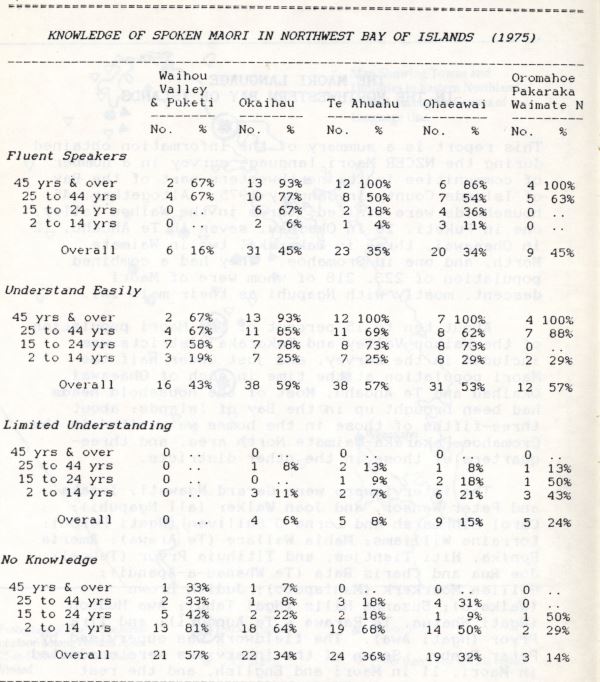-
Ngā Karere me Ngā Rauemi
News and Resources
Ngā Karere me Ngā Rauemi
News and Resources
-
Te Rangaihi Reo Māori
The Movement
Te Rangaihi Reo Māori
The Movement
-
Te Pae Kōrero
Our Community
Te Pae Kōrero
Our Community
-
Huihuinga
Events
Huihuinga
Events
-
Ngā Ara Ako
Learning Pathways
Ngā Ara Ako
Learning Pathways
-
SearchSearch
Search
Search

A majority of the older people had been punished for speaking Maori in the classroom or the school grounds. Of the people we talked to, 20 had been physically punished, six punished in other ways (like being given extra work to do around the school), and another six had escaped themselves, but said Maori was not allowed, and others had been punished; six more had been to schools where there was no rule against Maori, but only one person (in Te Ahuahu) had felt encouraged to speak Maori while at school, in contrast to a kaumatua in Waimate North, in whose day "spies used to go to the teacher with tales". The troubles which these people had encountered in school were very similar to those mentioned by people we interviewed in other districts. (The school experiences of Maori-speakers in various parts of North l and are set out and discussed in a paper, "Maori Perceptions of School Experience and Other Influences on the Maintenance of the Māori Language in Northland" by Nena Benton, available from Te Wahanga Maori, NZCER.) Quite a few of those we met in the districts covered by this report were obviously very pleased with the ways schools had changed, and were happy that their own children and grandchildren were able to study Maori at High School. They were looking forward to an increase in the amount of Maori language teaching in all schools.
Te Tai Tokerau | Northland | Far North | 1970-79 | 5% of Māori children can speak te reo. (1970-75) | Story is by tangata whenua
















Comments